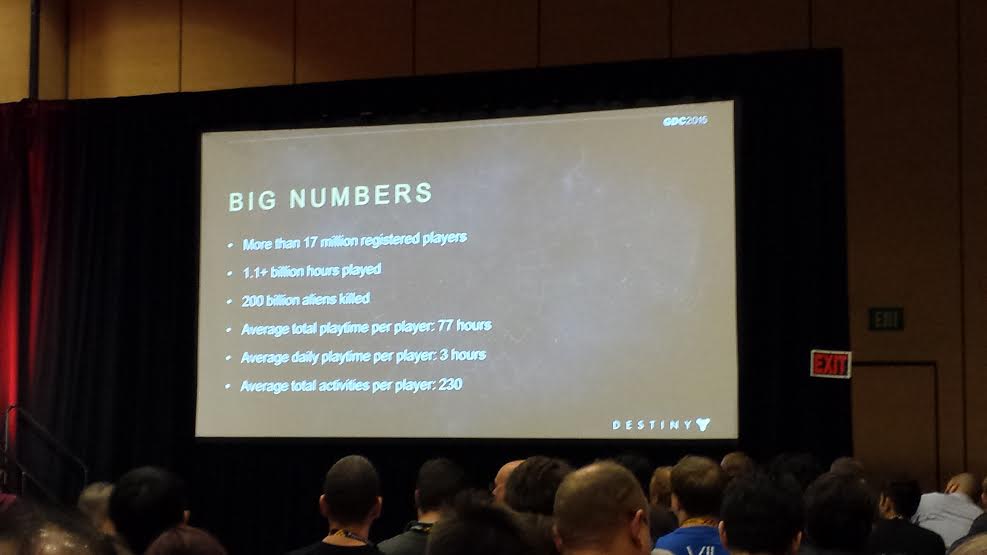Bungie’s online shooter Destiny now has more than 17 million registered players, the developer announced today during a Game Developers Conference presentation in San Francisco. This is up from 16 million registered players a month ago. Of course, this doesn’t mean the game has actually sold 17 million copies, but it’s a new milestone all the same.
The new statistic was revealed by Bungie’s John Hopson during a panel today about user research. You can see some additional statistics through the image above.
As previously announced, the average Destiny daily playtime is three hours per player. Hopson said Bungie was blown away by this statistic, as it originally modeled about 39 minutes of daily playtime per player, Hopson said.
Hopson also shared another slide that speaks to how Destiny players spend their time in the game. As you can see in the image at left, Strikes are the most popular activity, but not by much. In fact, playtime is fairly evenly divided between all Destiny activities.
Another interesting story to come out of the Destiny panel is that Bungie knew about the game’s infamous Loot Caves before the game was even released. However, Hopson said Bungie didn’t think they would be too much of an issue because the per-minute loot drop rate was no different than any other area of the game. In fact, Loot Caves drop less loot per hour than can be earned by playing the game normally, he said.
What Bungie didn’t consider, Hopson recalled, is that a lot of players were more interested in “loot-per-effort.” Scoring a heap of loot in a Destiny Loot Cave may not have been the fastest way to acquire loot, but it was the easiest, Hopson said.
Hopson further explained that Destiny players reported other players for negative behavior activity more during the Loot Cave heyday than ever before. This is because some considered Loot Caves to be unfair exploits, asking Bungie to close them–which the studio eventually did.
Finally, Hopson spoke about the tight security measures Bungie employed during early Destiny tests, which took place as early as 2010, he said. When gamers were invited to Bungie’s headquarters to test Destiny, the developer made these people walk through metal detectors and give up their cellphones. Players were also never left alone with the game.
Hopson said the somewhat extreme security measures Bungie used to keep Destiny a secret were possibly overkill, but explained that it was preferable to having the game leak early.
Powered by WPeMatico




